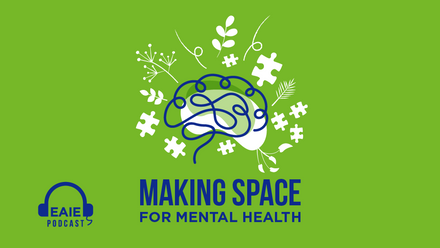4 tips for supporting international students in COVID-19 quarantine

With the COVID-19 pandemic continuing into the second half of the year, universities around the world face challenges formerly undiscussed. While many universities will continue to offer only online classes this fall, others are planning to at least partially reopen or are already operating with restrictions. However, regardless of whether classes will be online or offline, student services – which remain at the heart of international higher education – come with their own set of new challenges due to COVID-19. One of them is the tough question: How do we support students that have to undergo quarantine procedures?
The reasons for quarantine might differ, ranging from students who have been in contact with a confirmed case to government quarantine requirements for incoming students. This is especially challenging for international students, who lack the necessary resources and network in their study destination. Nevertheless, a recent report from IDP Connect finds that 77% of surveyed students would prefer to quarantine themselves over deferring their entry to a fall programme. Student services in the era of COVID-19 require us to rethink whether and how we can support our international students, who are especially vulnerable in these challenging times.
National Taiwan University (NTU) has been faced with this challenge since the beginning of March, when everyone returning to Taiwan was required to quarantine for 14 days. This situation was especially difficult for international students, some of whom had used the extended winter break to travel or visit families and were surprised by sudden quarantine restrictions. Apart from a lack of local resources, these students lived in shared dorm rooms on campus, which made them unable to quarantine at home without putting others at risk. To solve this problem, NTU’s Office of International Affairs (OIA) swiftly coordinated with other administrative units to organise the 14-day quarantine and support students during this difficult time.
What follows are four lessons learned from the experience, based on interviews with quarantined students and staff involved in the procedure.
1. Smooth organisation around the clock
Planning students’ quarantine starts with their arrival at the airport and ends with their last day in the quarantine facility. To ensure a smooth quarantine experience, administrators have to plan every detail, including airport pick up and transport, which quarantine facility to pick, how to guarantee a balanced and healthy diet, which necessities the students need to be provided with (eg thermometers, disinfectant, toilet paper, masks, snacks) and how to ensure their mental well-being throughout the process.
It is interesting to note that the students especially appreciated details like natural light in their hotel room, fast Wi-Fi and the daily check-in calls by office members. Additionally, we experienced that providing 24-hour on-site support is a necessity. A staff member supporting students on-site shared: “Once a student’s phone ran out of battery at 5 am, and immediately police officers arrived to check on him. Staff members always needed to be there in case something like this happened.”
2. Psychological support for quarantined students
One thing repeatedly mentioned by students after the quarantine was the importance of psychological support through the international office’s staff. One student expressed that, every day, he was looking forward to the phone call from his responsible staff member, which put his mind at ease. One student from Korea explained: “During quarantine, I think the psychological aspect is very important. Some days I felt very lonely, so every day, I was waiting for the call of my advisor from the OIA, and after talking to her, I felt better. The feeling that the university is truly concerned about my well-being was comforting.”
Interestingly, many students also drew a connection between the food provided and their mental well-being. Nearly all of the international students expressed their difficulties with the local diet; it can be a challenging task for administrators to guarantee balanced meals and cater to students’ diverging dietary preferences. Thereby, it is also important to remember the link between food and psychological well-being: if you eat well, the impact on your mental health is tremendous. As students emphasised multiple times, small things made a big difference for them, like an extra snack in the afternoon or a meal from their home country’s cuisine. Administrators are well-advised to keep this in mind.
3. Liaising between students and local authorities
Another point that came up throughout the interviews was the importance of international administrators as liaisons between students and local authorities, especially in settings where students might not be able to speak the local language. A student from Mongolia recalled: “The police were always checking on me, but they didn’t speak English, and my Chinese wasn’t good enough. So my advisors from the OIA took over all the administrative coordination with the local authorities after I handed over my information to them upon arrival at the airport.” This is mirrored by the staff’s experience: “Communication was the most challenging aspect. I had to translate information from the immigration agency to the local police, the Center for Disease Control, airport customs, and then to the students and then the other way round.”
4. The human factor: support for staff members
Lastly, it is important to keep in mind the human factor, namely the needs of the staff members managing quarantines. Professional training will be necessary since university staff is not skilled to handle medical quarantine procedures. One colleague recalls: “In the beginning, everyone was afraid of the task, but after receiving training on how to protect ourselves, we were relieved. It is crucial to educate staff members on the proper procedures of disinfection and personal protection.”
Moreover, the extraordinary efforts of staff members need to be acknowledged and compensated. This includes flexible regulations for overtime work, which is especially necessary when staff members provide 24-hour on-site support, as well as an atmosphere of appreciation at work. After all, the management and resolution of new challenges, such as supporting students through COVID-19 quarantine procedures, rests on the shoulders of well-prepared, dedicated, and valued staff members.
To conclude, universities need to rise to the occasion when it comes to student services to protect international students, who are especially vulnerable during the pandemic. National Taiwan University’s example shows that managing students’ quarantines is a complex and comprehensive task that broadens the scope of international offices. Besides meticulous planning, it requires extraordinary communication skills from international administrators - both when interacting with local authorities and students to ensure a smooth quarantine procedure and while supporting students’ psychological well-being throughout the process. Lastly, during these challenging times, institutions should acknowledge the stress on both students and staff members, and find flexible solutions to ensure a positive campus atmosphere.






